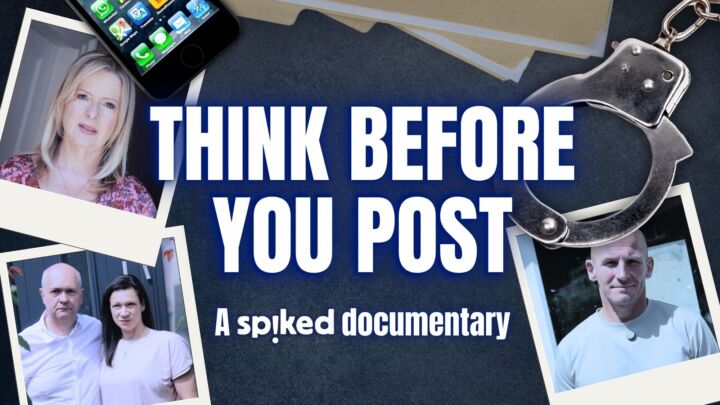Rebel without a brand
I tried to become a political consumer - and found it took either too much money, or too little consumption.

Want unlimited, ad-free access? Become a spiked supporter.
Consumerism is the new politics, so we are told. But how do you go about being a political consumer?
I turned to two of America’s bestselling anti-consumerist books to find out.
The McDonaldization of Society (1), by George Ritzer, advised me:
- ‘Avoid living in apartments or tract houses. Try to live in an atypical environment, preferably one you have built yourself or have had built for you.’
- ‘Never buy artificial products.’
- ‘Seek out restaurants that use real china utensils; avoid those that use materials such as styrofoam that adversely affect the environment.’
- ‘Go to no movies that have roman numerals after their names.’
My bank didn’t take too kindly to this, especially when I asked for a loan to subsidise my new custom-built house and china diner regime. The ban on artificial products ruled out my favourite chocolate bars – along with deodorant, washing powder and soap (my friends weren’t too happy about this, either). And I was prevented from watching The Godfather Part II.
More frugal advice was given by Juliet B Schor, in her sternly titled The Overspent American: Why We Want What We Don’t Need (2). She said:
- ‘Stay away from malls and upscale shops, knowing that such exposure inevitably creates desire.’
- ‘Consciously do less socializing with… shopaholic friends.’
- ‘At Christmas time, consider ‘limiting the number of gifts’, ‘making rather than buying tree ornaments’ and ‘devoting your annual Christmas letter to issues of “stabilizing” consumption.’
- ‘Participate in Buy Nothing Day, the annual day-after-Thanksgiving ritual of zero shopping that is fast becoming an international movement.’
My bank was far happier with these proposals, but I wasn’t. And my family were nonplussed by my homemade Christmas baubles and incoherent letters about stabilising consumption.
I’ve decided that I will never make a good consumer activist. I am too poor for the ethical products, and too fond of fun for the ethical abstention, to storm the barricades with a shopping trolley.
Read on:
Why consumer activists should pack their bags by Frank Furedi
spiked-issue: Anti-capitalism
(1) George Ritzer, The McDonaldization of Society, California: Pine Forge Press, 2000
(2) Juliet B Schor, The Overspent American: Why We Want What We Don’t Need, New York: HarperPerennial, 1999
You’ve read 3 free articles this month.
Support spiked and get unlimited access.
Support spiked – £1 a month for 3 months
spiked is funded by readers like you. Only 0.1% of regular readers currently support us. If just 1% did, we could grow our team and step up the fight for free speech and democracy.
Become a spiked supporter and enjoy unlimited, ad-free access, bonus content and exclusive events – while helping to keep independent journalism alive.
———————————————————————————————————————————–
Exclusive January offer: join today for £1 a month for 3 months. Then £5 a month, cancel anytime.
———————————————————————————————————————————–
Monthly support makes the biggest difference. Thank you.






Comments
Want to join the conversation?
Only spiked supporters and patrons, who donate regularly to us, can comment on our articles.